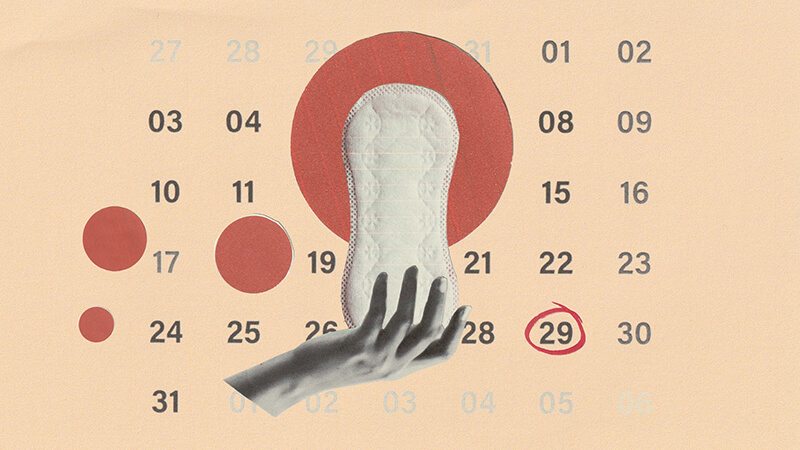Is Gut Health The New Diet Culture?
Gut health is having a moment online. Struggling with fatigue? It’s your gut! Suffering from bloating? It’s your gut! Skin breaking out? You get the picture. Testament to that fact: the hashtag #GutHealth has 2.4 billion views on TikTok. We are told we need to ‘heal our gut’ so topics such as ‘gut healing’ and ‘gut-health tips’ are flooding the app’s FYP (For You Page). For the uninitiated, many of these videos start by listing off symptoms – hormone imbalance, brain fog, body inflammation… Then there’s a before and after picture; the swell of bloating in a poorly lit bathroom selfie transforming into toned, tanned abs. What then follows is a plethora of lifestyle and diet changes that claim to give you the same results. Many influencers swore by shots of aloe vera juice; “My gut health? Never been better,” one raves in a video liked over one million times. There are also advocates for drinking shots of extra virgin olive oil, downing water with chia seeds and starting your day with soup for breakfast. All in the name of ‘gut health’. But is this really about ‘gut health’? Or is it simply a rebranding of diet culture?
There is no doubt the health of our gut can impact our overall health. Recent studies have uncovered how central our gut is to everything from skin conditions and digestion to immunity, and mental health. The issue, as called out by a recent New York Times article, is that the online obsession with gut health suggests there’s not enough data to prove whether any of these supposed fixes improve digestive function.
“The knowledge we have around gut health has increased exponentially,” explains nutritional therapist and author Eve Kalinik. “But with that comes a whole darker side to it, which is this promotion of products and programmes… Additionally, it can be another way of feeding into a pattern of disordered eating under the guise of it being healthy.”
Cleansing and detoxing trends reached their peak in the 2010s. While this language has now gone out of fashion, with outspoken dieting somewhat taboo, recent gut-health trends popularised online have simply replaced its predecessors with a new vocabulary such as ‘anti-bloating’ (therefore a flat stomach) or ‘gut-healing’ under the pretence of improving general health. “A healthy gut does not mean you have a flat stomach,” explains Kalinik. “It’s not about the aesthetics but about what is going on inside. I think that’s where it’s been miscommunicated.” The terms being bandied around are also raising eyebrows among professionals. “Gut healing is a fad term. We avoid it as it is often associated with protocols that aren’t always evidence-based,” explains Jo Cunningham, clinical director and registered dietitian at The Gut Health Clinic. Kalinik agrees: “I don’t like to use the term ‘gut healing’ because it’s not that the gut necessarily needs healing. It just might need some additional support and that would be different depending on the individual circumstances.”
A study in 2020 found that 40% of the participants worldwide suffer from gastrointestinal issues that affect their quality of life, so it’s not to say these issues don’t exist. (The key things to look out for, according to Kalinik, are “changes in your bowel movements, blood in the stool, any pain or bloating that is excessive and persistent. All those things should be checked out by a GP.”) While craving carbs, bloating, bad skin, inflammation, and fatigue are all said to be signs of a damaged gut, they’re also often symptoms of day-to-day living. So implications that these are symptoms of a damaged gut are not only unnecessary, explains Dr Lara Zibarras, a psychologist and food freedom coach, but they can also fuel negative relationships with food and body image. Hence she warns against labelling food as either good or bad for the gut. “This promotes disordered eating… Blanket removal of food from a diet, without a medically diagnosed reason to do so, is unnecessary.”
Identifying the facts around gut health is even more complex online because ‘gut health’ content can hide behind scientifically proven health advice. Creators can describe themselves as a ‘nutritionist’ or ‘holistic doctor’, often covering up a lack of credentials, warns Cunningham. “The term ‘dietitian’ is a protected professional title, so if a dietitian is recommending something, the advice is based on the latest scientific evidence. While some nutritionists are highly qualified and registered, unfortunately, anyone can ultimately claim to be a nutritionist.”
As with most things online, the expert advice is to take it with a pinch of salt. Cunningham believes our current online obsession with gut health is yet another example of ‘transformation’ content. “While previous fads may have looked at diets, cleanses and detoxes, looking after your gut health differs as it truly is of benefit [to your health]. You just need to get your advice from the right place.”
Eve Upton-Clark is an Amsterdam-based freelance journalist whose work has appeared in Dazed, i-D, Refinery29 and Cosmopolitan




